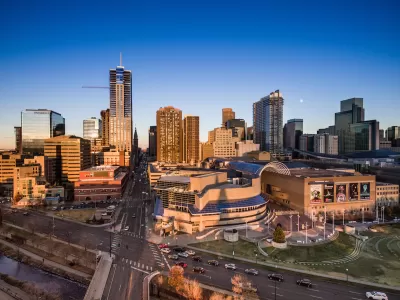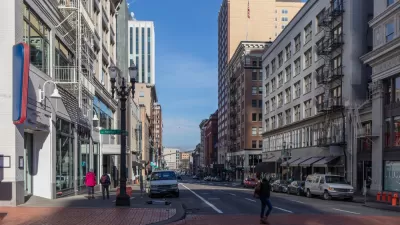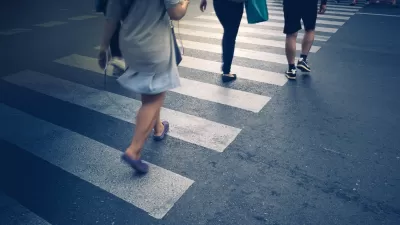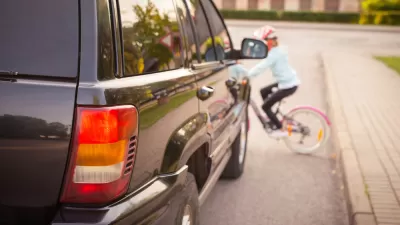The city says it is accelerating its Vision Zero initiative to improve road safety for pedestrians and vulnerable road users.

Five years after the city officially joined the Vision Zero movement, Denver saw the highest number of pedestrian deaths ever in 2023, reports Sage Kelley in the Denver Gazette.
“What's been maiming and killing pedestrians in Denver is a mix of poorly designed road infrastructure, bigger vehicles, and the lack of care by drivers, officials and advocates insisted, saying it's that combination that makes the streets so dangerous for those walking them.” Records show that 83 percent of traffic-related deaths involved vehicles traveling at speeds of over 30 miles per hour.
There were 28 reported crash deaths in 2023, compared to 21 in 2022. “Colorado numbers have also hit a record-breaking high, leveling above the significant increase that occurred post-pandemic. Preliminary numbers show 128 pedestrian crash deaths reported in 2023, according to the Colorado Department of Transportation's data dashboard.” In 2023, a study found Colorado to be the state with the most dangerous intersections for pedestrians.
In Denver, city officials want to reduce speed limits to 25 miles per hour on major streets as it focuses on its “high injury network,” the 5 percent of streets where 50 percent of fatalities happen. “Other strategies include creating bulbs on corners to lower pedestrian distance to cross roads and slow turning car speeds, medians in the middle of roads for ‘pedestrian refuge’ and pulling back parking on corners to increase visibility.”
FULL STORY: Denver's deadly streets: Pedestrian crash fatalities hit new high in 2023

Maui's Vacation Rental Debate Turns Ugly
Verbal attacks, misinformation campaigns and fistfights plague a high-stakes debate to convert thousands of vacation rentals into long-term housing.

Planetizen Federal Action Tracker
A weekly monitor of how Trump’s orders and actions are impacting planners and planning in America.

San Francisco Suspends Traffic Calming Amidst Record Deaths
Citing “a challenging fiscal landscape,” the city will cease the program on the heels of 42 traffic deaths, including 24 pedestrians.

Defunct Pittsburgh Power Plant to Become Residential Tower
A decommissioned steam heat plant will be redeveloped into almost 100 affordable housing units.

Trump Prompts Restructuring of Transportation Research Board in “Unprecedented Overreach”
The TRB has eliminated more than half of its committees including those focused on climate, equity, and cities.

Amtrak Rolls Out New Orleans to Alabama “Mardi Gras” Train
The new service will operate morning and evening departures between Mobile and New Orleans.
Urban Design for Planners 1: Software Tools
This six-course series explores essential urban design concepts using open source software and equips planners with the tools they need to participate fully in the urban design process.
Planning for Universal Design
Learn the tools for implementing Universal Design in planning regulations.
Heyer Gruel & Associates PA
JM Goldson LLC
Custer County Colorado
City of Camden Redevelopment Agency
City of Astoria
Transportation Research & Education Center (TREC) at Portland State University
Jefferson Parish Government
Camden Redevelopment Agency
City of Claremont





























